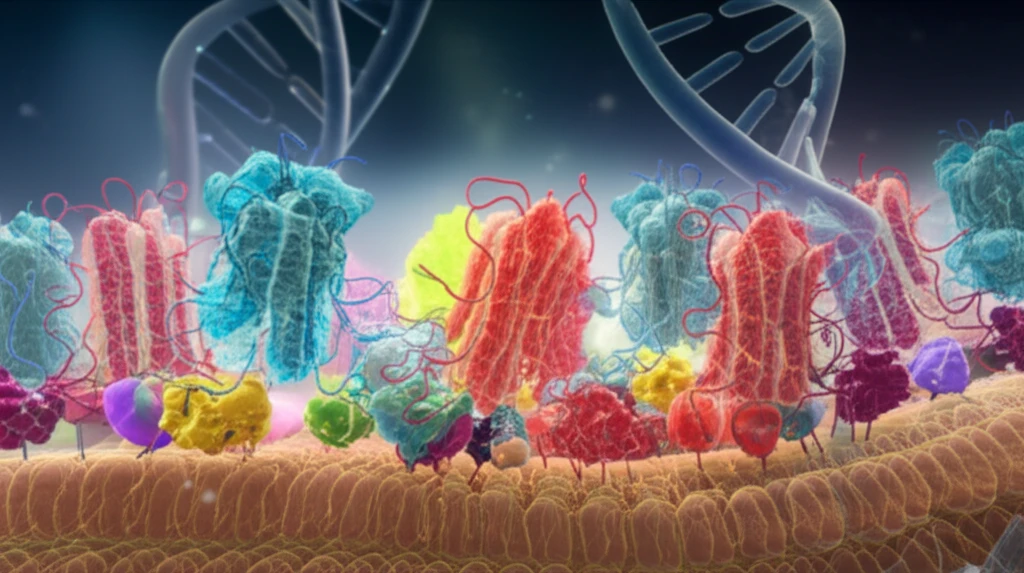
Decoding Your Genes: How ABC Transporters Influence Drug Effectiveness
"Unlock the secrets of pharmacogenetics and discover how variations in your ABC transporter genes can impact your response to medications."
Have you ever wondered why a medication works wonders for one person but has little effect – or even causes harmful side effects – in another? The answer may lie in your genes, specifically in a family of proteins called ATP-binding cassette (ABC) transporters. These tiny but mighty molecules play a crucial role in how your body handles drugs, and variations in the genes that code for them can significantly impact treatment outcomes.
ABC transporters are involved in numerous processes, including drug transport across cell membranes. Many genes coding for these transporters are polymorphic, meaning they come in different versions. These DNA variants can affect the normal functioning of these proteins, influencing how drugs are transported, which, in turn, changes drug levels inside and outside cells. These changes may lead to altered drug effectiveness or severe adverse events.
This article explores the fascinating world of ABC transporters, diving into how pharmacogenetics, the study of how genes affect a person's response to drugs, can help us understand and optimize drug therapy. We’ll examine clinically relevant ABC transporters, explore key genetic variants, and discuss how this knowledge can be translated into more personalized and effective healthcare.
What are ABC Transporters and Why Do They Matter?

ATP-binding cassette (ABC) transporters are a family of proteins that rely on ATP to function, influencing many processes in the body. These transporters are involved in various human diseases, including cardiovascular issues, ulcerative colitis, and Alzheimer's disease. Crucially, they transport molecules, regulating cell integrity, metabolism, and homeostasis. Their role in transporting numerous drugs means they significantly impact drug efficacy and toxicity.
- ABCA: Primarily linked to lipid trafficking.
- ABCB: Involved in transporting bile and peptides, located in the blood-brain barrier, liver, or mitochondria.
- ABCC: Includes the cystic fibrosis transmembrane conductance regulator (CFTR) and multidrug resistance proteins (MRPs), involved in transporting endo- and xenobiotics.
- ABCD: Found in peroxisomes.
- ABCE/ABCF: Involved in protein synthesis regulation, though not direct transporters.
- ABCG: Transports lipids, drug substrates, bile, cholesterol, and other steroids.
The Future of ABC Transporter Pharmacogenetics
The study of ABC transporters and their impact on drug response is an evolving field. While many associations between genetic variants and drug outcomes have been identified, more research is needed to strengthen the evidence and translate these findings into clinical practice. By exploring known variants, using advanced genomic techniques, and conducting more robust studies, we can unlock the full potential of ABC transporter pharmacogenetics to personalize medicine and improve patient care.
